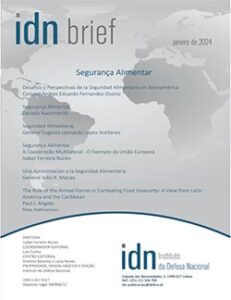Food insecurity is an urgent problem in Latin America and the Caribbean (LAC), and the LAC region’s susceptibility to food insecurity is poised to worsen. Food insecurity is not in itself a phenomenon that necessitates a military response. Indeed, food insecurity is “not” a traditional security threat to territorial borders and national sovereignty. Rather, it should be seen as an amplifier of political, economic, social, and ecological strain and vulnerabilities that can be exploited by malign actors and, thus, contributing to heightened security concerns. In this view, investments in food security should be considered as necessary, proactive, and preventative security measures, in support of civilian government agencies and the private and nonprofit sectors. Through a limited role focused on humanitarian assistance, disaster response, and interagency and international collaboration, the United States can leverage the capacities and resources of the DOD to support its regional partners in combating food insecurity. Anything less would risk losing a strategic, humanitarian, and moral imperative.

